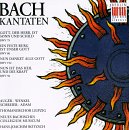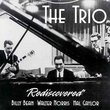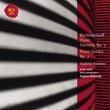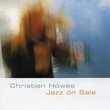| All Artists: Johann Sebastian Bach, Hans-Joachim Rotzsch, New Bach Collegium Musicum Leipzig, Thomanerchor Leipzig, Arleen Auger, Peter Schreier Title: Bach: Cantatas, BWV 79, 80, 192, 50 Members Wishing: 0 Total Copies: 0 Label: Berlin Classics Release Date: 11/29/1994 Genre: Classical Styles: Opera & Classical Vocal, Historical Periods, Baroque (c.1600-1750), Symphonies Number of Discs: 1 SwapaCD Credits: 1 UPC: 782124217624 |
Search - Johann Sebastian Bach, Hans-Joachim Rotzsch, New Bach Collegium Musicum Leipzig :: Bach: Cantatas, BWV 79, 80, 192, 50
 | Johann Sebastian Bach, Hans-Joachim Rotzsch, New Bach Collegium Musicum Leipzig Bach: Cantatas, BWV 79, 80, 192, 50 Genre: Classical
|
Larger Image |
CD DetailsSimilar CDs
|
CD ReviewsReformation Festival cantatas performed by near 800-year old Erik Gfesser | Lombard, IL United States | 12/27/2009 (5 out of 5 stars) "Such a great recording, it surprises this reviewer that no reviews have yet been written for this collection, which contains four cantatas by Bach listed according to Wolfgang Schmieder's catalogue: "Gott, Der Herr, ist Sonn und Schild" or "God is a Light and a Shield" (BWV 79), "Ein Feste Burg ist Unser Gott" or "A Mighty Fortress is our God" (BWV 80), "Nun Danket Alle Gott" or "Now Thank we All Our God (BWV 192), and "Nun ist das Heil und die Kraft" or "Now Have Come the Salvation and the Power" (BWV 50). As explained in the liner notes, many of Bach's works were introduced by the Thomanerchor (St Thomas Choir) in Leipzig, founded in 1212 and for which Bach held the office of cantor from 1723 to 1750. At least two (possibly three) of the cantatas featured here were written by Bach specifically for the Reformation Festival that is observed annually to recall the October 31, 1517 posting by Martin Luther of the 95 theses in Wittenberg. BWV 80 is actually an expanded version of an earlier cantata by Bach which was written with the Reformation Festival in mind and which has been described as the "Marseillaise of the Reformation", having originally been composed by Martin Luther in 1529. In the liner notes, Christiane Krautscheid writes that "the opening chorus is arguably the most elaborate treatment of a chorale Bach ever undertook so that it may well be seen as the crowning achievement of his choral writing". While BWV 80 was the reason for the acquiring of this collection by this reviewer, the festive nature of BWV 79, the sumptuousness of BWV 192, and the magnificent double chorus of BWV 50 provide continuity between BWV 80 and other closely related works by Bach."
|

 Track Listings (18) - Disc #1
Track Listings (18) - Disc #1


